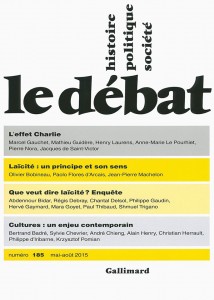Social Imaginaries, Vol. 1, issue 1 (Spring 2015)
Table of Contents
Natalie J. Doyle: Introduction to Marcel Gauchet’s “Democracy: From One Crisis to Another”
Marcel Gauchet: Democracy: From One Crisis to Another (translated by Natalie J Doyle)
Abstract: Democracy is in crisis. This crisis is the paradoxical outcome of its triumph over its erstwhile rivals. Having prevailed over the totalitarian projects of the first half of the 20th century it has developed in such a way that it is now undermining its original goals of individual and collective autonomy. Modern liberal democracy – the outcome of an inversion of the values of tradition, hierarchy and political incorporation – is a mixed regime. It involves three different dimensions of social existence, political, legal, historical/economic, and organises power around these. A balance was achieved after the upheaval of World War II in the form of liberal democracy, on the basis of reforms which injected democratic political power into liberalism and controlled the new economic dynamics it had unleashed. This balance has now been lost. Political autonomy, which accompanied modern historicity and its orientation towards the future, has been overshadowed by economic activity and its pursuit of innovation. As a result, the very meaning of democracy has become impoverished. The term used to refer to the goal of self-government, it is now taken to be fully synonymous with personal freedom and the cause of human rights. The legal dimension having come to prevail over the political one, democratic societies see themselves as ‘political market societies’, societies that can only conceive of their existence with reference to a functional language borrowed from economics. This depoliticisation of democracy has facilitated the rise to dominance of a new form of oligarchy.

